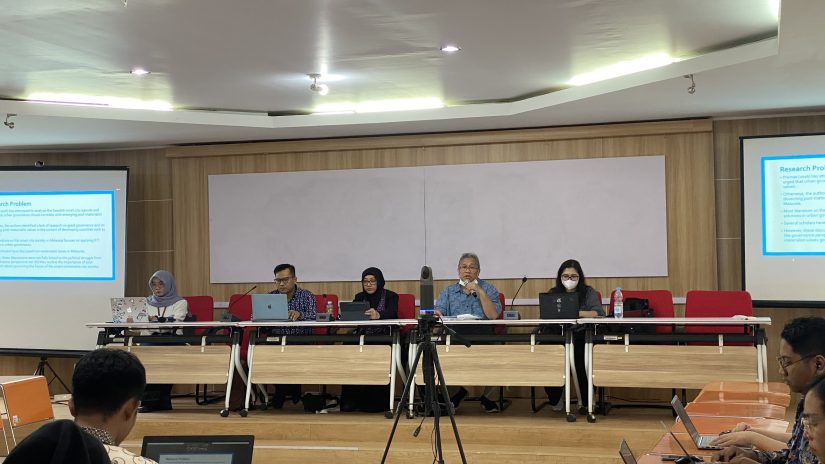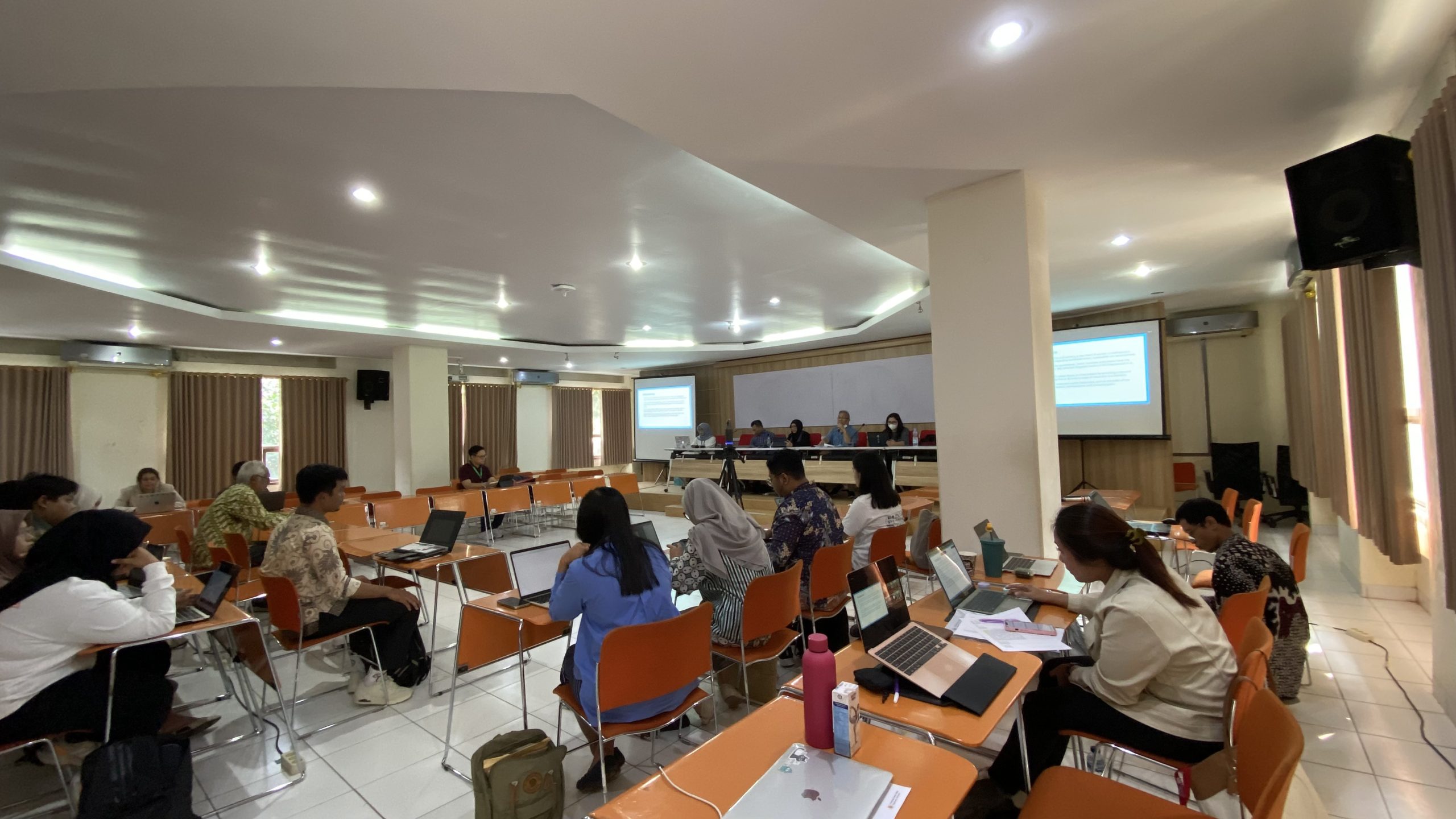
[Yogyakarta, July 9th, 2024] – The Center for Southeast Asian Social Studies Universitas Gadjah Mada (CESASS UGM), Indonesia held a roundtable discussion on “the Interplay of Smart Cities, Social Transformation, and Identity Politics in Southeast Asia”.
The swift advancement of technology and its incorporation into urban settings have converted cities into smart cities, targeting improved efficiency, sustainability, and quality of life. At the same time, Southeast Asia is undergoing substantial social changes driven by global shifts, cross-border movements, and an increasing emphasis on regional identity, especially within the context of ASEAN’s vision of “One Vision, One Identity, One Community.” This theme seeks to delve into the intricate interactions between these factors, offering a thorough understanding of how smart cities, social transformation, and identity politics converge and influence the future of Southeast Asia.
The roundtable discussion on “The Interplay of Smart Cities, Social Transformation, and Identity Politics in Southeast Asia” was an intellectually stimulating event graced by esteemed dignitaries and leading academics. Prof. Rini Rachmawati, S.Si., M.T., Director of CESASS UGM, inaugurated the event, setting the tone for a program rich in academic rigor and insightful dialogue. Dr. Jalaludin Abdul Malek from Universiti Kebangsaan Malaysia also presented, expressing the university’s support and commitment to international collaboration and academic excellence.

The head of UGM’s Center for Southeast Asian Social Studies, Prof. Rachmawati emphasized the dramatic transformation of various aspects of life through the emergence of the smart city concept, driven by the rise of ICT. Highlighting smart city initiatives in Indonesia, including Makassar, Banyuwangi, and DKI Jakarta, she discussed the ASEAN Smart City Network (ASCN) and its role in developing sustainable cities and communities.
Dr. Jalaludin Abdul Malek presented on “The Rise of Post-Materialist Values in Building A Smart Sustainable City Society: From The ‘Good Enough Governance’ Perspective.” He introduced the concept of good enough governance, emphasizing the importance of citizens’ value propositions in shaping a smart society, and highlighted the shift from materialist to post-materialist values in Indonesia and Malaysia.
Dr. M. Falikul Isbah discussed “Social Transformation in Contemporary Southeast Asia,” highlighting the importance of developing Southeast Asia as a knowledge hub. He emphasized fostering methodologies in Southeast Asian studies within Indonesia, building a multidisciplinary academic network, and encouraging the publication of works by Indonesian scientists to enhance regional understanding and collaboration.
Lidwina Mutia Sadasri, M.A., an expert from Universitas Gadjah Mada, dedicates her presentation to ASEAN identity, digital media, and communication, exploring how popular culture can communicate and construct ASEAN identity. She introduced the topic “Communicating ASEAN Identity Through Popular Culture,” explaining that ASEAN identity is a social construct defined by a balance of “Constructed Values” and “Inherited Values.” She discussed concepts like power distance, individualism-collectivism, and uncertainty avoidance, while highlighting the role of cinema, music, heritage, and popular culture in shaping contemporary ASEAN identity.
This roundtable discussion aims to highlight the significant researches and initiatives undertaken by CESASS UGM and its partners, showcasing their commitment to exploring and addressing critical issues in Southeast Asia through collaborative and interdisciplinary efforts. The event also envisions a future where smart cities in Southeast Asia and Indonesia thrive, leveraging advanced technology to create sustainable, efficient, and inclusive urban environments that enhance the quality of life for all residents.
About CESASS UGM:
The Center for Southeast Asian Social Studies (CESASS) at Universitas Gadjah Mada (UGM) is a leading research center dedicated to the interdisciplinary study of Southeast Asia. CESASS UGM conducts research, provides academic programs, and promotes knowledge exchange to deepen understanding of Southeast Asia’s diverse cultures, societies, and development challenges.
About UGM:
Universitas Gadjah Mada (UGM) is a prestigious university located in Yogyakarta, Indonesia. It is renowned for its academic excellence, research contributions, and commitment to community engagement. UGM strives to nurture global-minded scholars and leaders who will contribute to the advancement of society.
Writer: Chou, Chen-An
Pusat Studi Sosial Asia Tenggara UGM
pssat@ugm.ac.id
(0274) 589658
